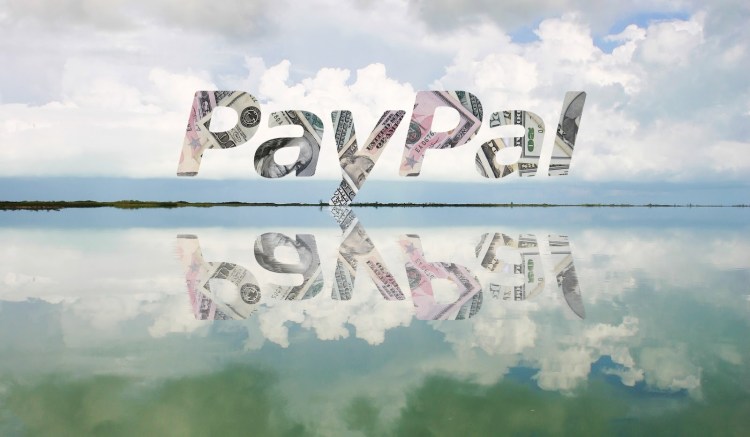PayPal and the crowdfunding community have had a rocky relationship — but the eBay-owned payments company has rebuilt that bridge with revamped crowdfunding policies, multiple PayPal executives told VentureBeat today.
Like most relationship fixes, the secret sauce proved to be better communication. Over the last few months, PayPal has implemented two major changes to its crowdfunding policies, both of which it announced Thursday evening:
- PayPal is engaging directly with campaign owners “early on” to ensure they comply with PayPal policies and government regulations — and help bring them up to snuff if they don’t.
- That early communication also serves as a categorization process, in which PayPal and crowdfunding portals work together to determine if campaigns are primarily pre-selling merchandise or are “strictly fundraising.”
Tomer Barel, PayPal chief risk officer, admits crowdfunding campaigns are inherently risky, but consumers are becoming more informed about the uncertainty inherent to crowdfunding, he said. In conjunction with its platform partners, PayPal intends to make that distinction between crowdfunding and pre-selling for every single campaign and clearly communicate that to crowdfunders.
“Once we make that distinction clear, once the consumer has full transparency that this is indeed a crowdfunding initiative and there is a likelihood of [rewards or perks] not being fulfilled, we feel positive we should not interfere and put any limitations on these activities,” Barel told VentureBeat.
Begone, freezes!
These have been dozens of cases where high-profile crowdfunding campaigns had their funds frozen in PayPal limbo, causing major issues for the project creators. Last year, for example, PayPal froze the account linked to Lab Zero Games, which had raised around $700,000 through the platform for its fighting game Skullgirls. The freeze prevented Lab Zero CEO Peter Batholow from paying his employees on time.
“Basically, they are terrified of chargebacks,” explained a frustrated Bartholow at the time.
“If we spend all the money and don’t deliver and everyone [requests] chargebacks, PayPal is concerned they will be on the line for [the money]. So, they are effectively treating it as a loan. I mean, the guy flat out said: ‘Until the threat of chargebacks has passed, PayPal is effectively financing your development.’”
Chargebacks remain a concern for PayPal, which still carries the financial liability if consumers decide they didn’t get what they paid for. But by holding campaign owners’ hands through the process — and keeping backers’ expectations in check — PayPal expects to greatly diminish that cost of doing business. That means unjustifiably frozen funds will become a thing of the past, promised Barel.
“We believe if there is transparency, consumers understand it. They’re not really consumers in this case, actually — they’re backers, they’re investors, and they’re not in a position to say, ‘I didn’t get what I was promised’.”
An investment in innovation
While it’s a bit surprising that PayPal doesn’t trust its partner platforms to vet campaigns and educate their users independently, FundRazr CEO Daryl Hatton isn’t perturbed. In fact, he appreciates the help.
“This is a natural part of the maturation of the industry: We’re going to see more vetting on these campaigns and the quality of the business model, because of the risks involved,” he said in a conversation with VentureBeat.
“Sadly, there are a lot of new entrants in the market that aren’t doing the vetting and processing. Until the practices are better established, this is a great collaboration. It doesn’t have to be a burden on us that this vetting is going on.”
Vetting every crowdfunding campaign independently seems like an large amount of effort for PayPal, because crowdfunding contributions represent a tiny sliver of its overall payment volume. (PayPal declined to disclose what percent of its processed payments are crowdfunding, but PayPal’s global initiatives chief Anuj Nayara told us it’s “a very small percentage” of its 9 million daily transactions.)
But Barel called it an investment in innovation.
“PayPal has always been a spot of innovation and on the side of entrepreneurs,” he said.
“Despite the challenges of the [crowdfunding] model, it was always really important for us to find a solution.”
PayPal’s revised policies toward crowdfunding are a huge boon for the burgeoning crowdfunding movement. There are payment platforms engineered from the ground up for crowdfunding payments, like Palo Alto startup WePay, but PayPal dwarfs those competitors on a few key metrics: overall payments volume, international reach, and brand recognition.
Kickstarter, the world’s largest crowdfunding site, uses Amazon Payments; but runner-up Indiegogo supports PayPal, as do hundreds of other crowdfunding platforms. Now, hands extended, PayPal’s executives hope the rest will hop on board.






![Reblog this post [with Zemanta]](http://img.zemanta.com/reblog_e.png?x-id=316cc97a-0343-42f2-bc07-9138727c0d5f)

